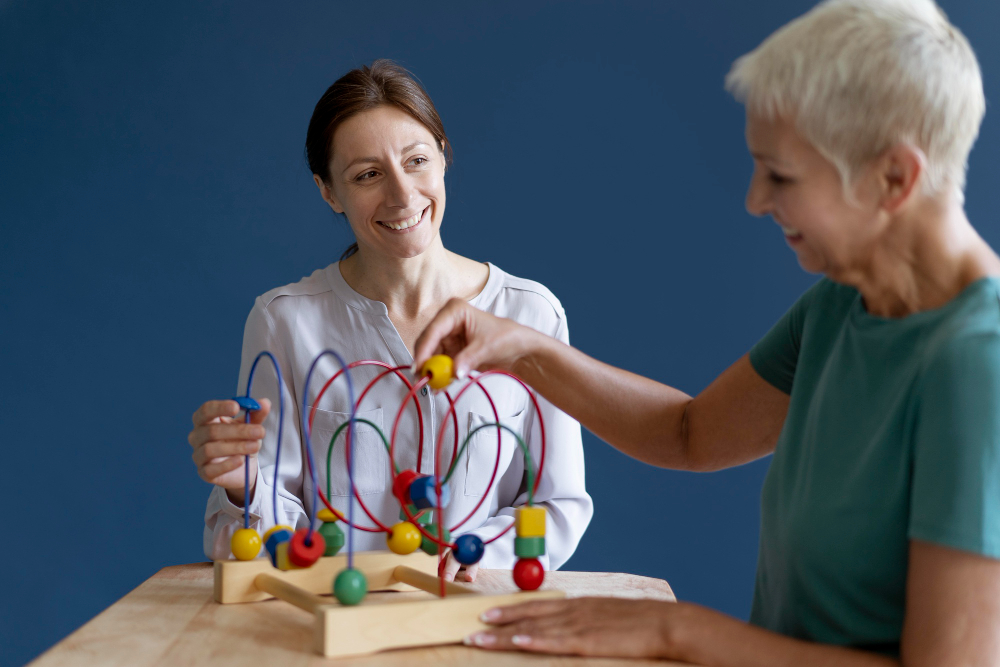Autism Spectrum Disorder (ASD) is a developmental disorder where a difference in brain development impacts a person’s perception of others and how they in turn socialise with them. Autism spectrum disorder generally is first noted in the early childhood years where one can see changes in how a child functions in society and their performance at school and home. Autism spectrum disorder symptoms generally range on a spectrum depending on the ASD symptoms as well as their severity.
Research has not been able to identify the exact cause of ASD, however, certain risk factors that can contribute are genetics, hereditary factors, environmental factors. Brain imaging studies have shown that there are differences in certain brain regions of people with ASD. Autism symptoms can be seen across cultures, ethnicities, gender and regions. There has not been a cure found for Autism however, the earlier an intervention is provided, the better it will be for the person to adapt. There are therapies as well as medications that are included depending on the signs and symptoms catered towards an individual’s needs. Thus, no two people will have the same treatment plan.
Symptoms of Autism Spectrum Disorder
Since the disorder is related to social interaction, most of the symptoms are related to how one interacts and communicates in social settings:
- Lack in maintaining eye contact
- Inability to respond when one’s name is being called
- Tend to play alone
- Avoid physical interactions like hugs
- Do not engage in play with other children
- Inability to understand gestures and other non-verbal forms of communication
- Lack of expressions, monotonous (or robotic/flat) voice
- Inability to identify expressions and emotions of others
- Lack of understanding of basic questions
- Inability to initiate conversations or only with respect to achieving certain goals or requests
Repetitive Patterns Of Behaviour
Signs of autism also are related to repetitive patterns of behaviour such as:
- Repeating one behaviour or engaging in unusual behaviour like flapping or arms, rocking oneself
- Repetition of words and phrases
- Directing attention to just one part of an object or thing
- Food preferences restricted to a few types/ refusal of certain food of texture
- Engages in interaction with the same toys or objects
- Emotional outbursts; more so when encountering new situations
- Inability in maintaining co-ordination
- Obsessive interests in one particular object, place or topic
- Disturbed by changes in routines and schedules
- Engaging in behaviour that could harm them like baning head
How to identify the signs and when to see a doctor?
Early screening and observation of behaviour can help in the identification of ASD. Children with ASD tend to show delayed developmental processes so if you are concerned, you can consult a doctor. Certain signs such as delays in skills that are related to communication and social interaction appear early on which can be an indicator. A checklist is usually provided during the screening and usually is done when the child is nine months to 18 months and so on. If there are chances, a thorough evaluation is conducted.
Contact us at Brilliant Light Services for further assistance and support.





